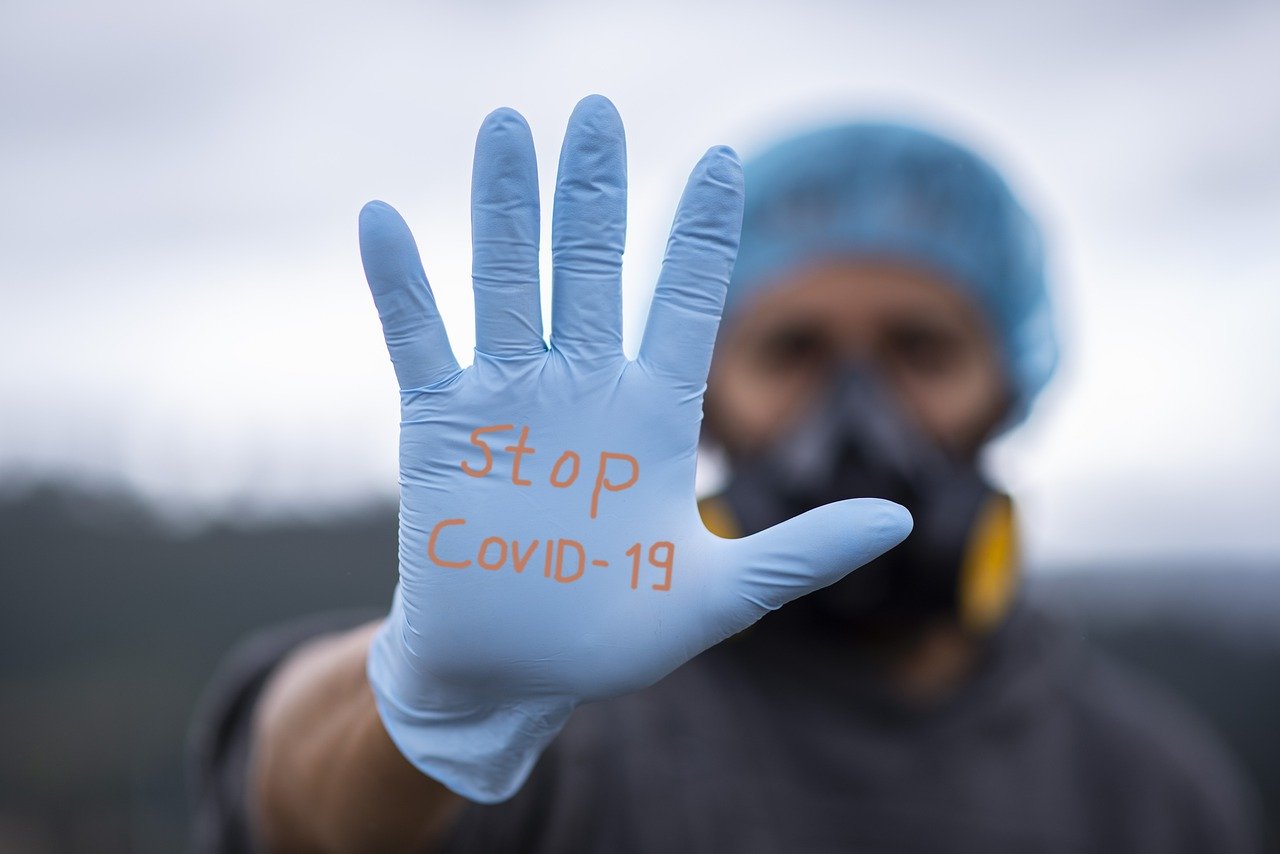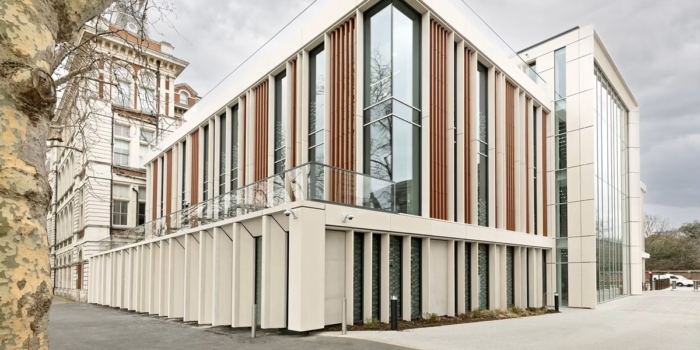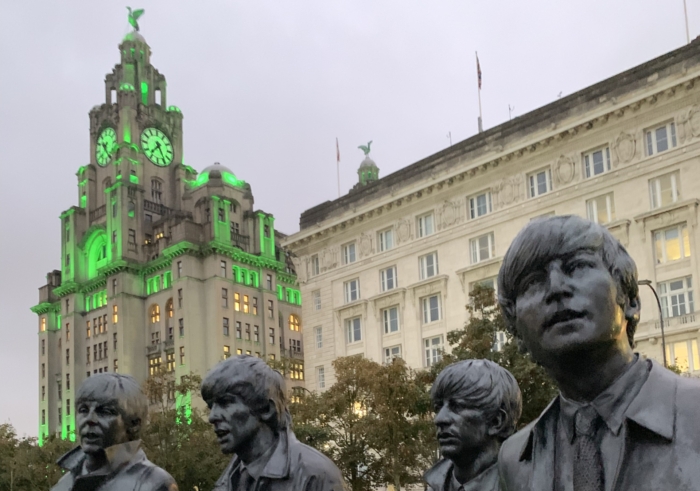University engineers donate expertise and equipment in coronavirus struggle
A survey by the Engineering Professors’ Council (EPC) has highlighted the phenomenal scale of the sector response as teams of university-based engineers across all UK regions join forces with colleagues, students, industrial partners and frontline clinical staff to support both local and national Covid-19 initiatives.
Out of over 50 separate engineering departments that responded to the survey, all but two had been actively involved in Covid-19 response activities. Four out of five respondents had produced PPE, one-third had supplied or developed other medical equipment, one-quarter had provided specialist facilities, and over half had provided expert advice, analysis and engineering skills.
Please see below for just some examples of the work shared with us during April. The brief summaries – listed by region – are accompanied by press contacts and links, where appropriate. Many staff have also been involved in university wide and community volunteering schemes. Please note that some respondents provided details but did not wish these to be made public; these are not included in this resource.
EPC members are invited to add further examples via our discussion forum. Please do provide a media contact.
Yorkshire and the Humber
The University of Hull has been leading a collaboration to develop and produce face shields to support the NHS and other healthcare organisations in the region. Over a two-week period in April, they produced and delivered 1,490 3D printed face shields within the University before partnering with an injection moulding company to produce 8,330 injection moulded headbands within 11 days and a further 25,000 within 16 Days. Mass production of the face shields is expected to produce between 35,000 – 70,000 per week to feed into the national supply chain.
Engineers have produced and distributed visors, initially by designing and 3D printing them, but have redesigned them for injection moulding, which is being undertaken by a local company, with the capability of producing 20,000 per week. These are being distributed to local hospitals and health care workers. The materials cost is being funded by crowdfunding (mainly alumni).
Media contact: Stella Harkness, Press Officer e: S.Harkness@hull.ac.uk t: 07484 534322
The University of Sheffield has been mass manufacturing face shields, including 3D printing and disinfection. Around £60,000 worth of personal protective equipment (PPE), including masks, gloves, aprons and eyewear, has been donated by the University to front-line NHS staff treating patients with coronavirus, with significant donations from the Departments of Electronic and Electrical Engineering and Materials Science and Engineering.
The Department of Materials Science and Engineering has also provided Doncaster Royal Infirmary and Sheffield Teaching Hospital Trust with eleven powered respirators, while the Department of Chemical and Biological Engineering has loaned a number of Polymerase Chain Reaction machines to the army for use in Covid-19 testing.
Engineers have joined the Covid-19 Genomics UK Consortium, a £20 million investment to create valuable intelligence that could provide breakthroughs in how to fight this, and future pandemics. The expert consortium will work together to analyse rapidly the genetic code of coronavirus samples circulating in the UK. In doing so, they will provide unique cutting-edge intelligence about the cause of the disease to share with public health agencies, hospitals, regional NHS centres and the government to help combat the virus.
The University’s Advanced Manufacturing Research Centre (AMRC) has, as part of the Ventilator Challenge UK consortium, produced augmented reality headsets programmed to enable skilled aerospace and automotive production line operatives to rapidly switch to the manufacture of 10,000 life-saving medical ventilators. It has also turned its recently opened R&D facility in North Wales into a production facility for the devices.
In the Department of Chemical and Biological Engineering; academics, technical and administrative staff and researchers are working together to produce the Covid-19 spike protein as rapidly as possible to enable their local NHS to widely deploy an antibody test. Meanwhile, researchers are working on developing RNA extraction methods for the high throughput extraction of viral RNA from patient samples to help with the detection of Covid-19.
The Department of Automatic Control and Systems Engineering is working with academic colleagues to develop models to help the NHS Sheffield Trust, and the Sheffield City Council to effectively allocate resources.
Professor Vanessa Speight, from the Department of Civil and Structural Engineering, has acted as co-chair on a working group at the Virtual International Research Summit on Covid-19. The group looked at the potential to recover Covid-19 genetic material from wastewater to give an indication of the level of infection across the community, sharing best practice and identifying areas where more research is needed to increase confidence in estimates.
A website created by engineers at the University of Sheffield, has been made available to schools as a free resource for GCSE and A-Level physics students, allowing them to conduct virtual experiments and continue their learning during the coronavirus pandemic.
Media contact: Meg C Holmes, Marketing & Communications Manager, Faculty of Engineering e: m.holmes@sheffield.ac.uk t: 07966 415653
West Midlands
The University of Birmingham has worked with medical colleagues to design and develop a disposable plastic ‘pop-up tent’ which creates a protective barrier between patients and healthcare professionals. The Disposable Resuscitation, Intubation and Nebulisation Kit Shield – or DRs INK Shield – is a compact device designed to cover the patient’s head, neck and shoulder area while treatments for Covid-19 are administered.
They are also working on a solution to improve the seal and fit of facemasks used in hospitals during the Covid-19 crisis and manufacturing hand sanitiser for local social care workers.
Engineering staff have been joined by students to 3D print protective visors for Queen Elizabeth Hospital Birmingham.
Meanwhile a University of Birmingham engineering student is leading on a huge global initiative in which participants around the world are working around the clock to combat issues created by the Coronavirus pandemic. The global online ‘hackathon’ called Hack Quarantine has over 2,500 technologists and scientists across five continents taking part.
Media contact: Rachel Ellis, Head of Marketing and Communications – Engineering and Physical Sciences e: R.Ellis.3@bham.ac.uk
Wales
Cardiff University has been working very closely with the Welsh Government and industry and clinical partners to develop and test new mask materials and methods of decontaminating masks so they can be reused. They have been involved in testing and manufacturing equipment for use by Public Health Wales.
Media contact: Amy Stackhouse, Head of Communications, College of Physical Science and Engineering e: stackhouseaj@cardiff.ac.uk t: 029 2087 9717
Swansea University engineers are currently leading a project for rapid decontamination of ambulances. Cleaning the vehicles by hand can take 45 minutes and is potentially dangerous to workers; researchers have developed a new system which could cut that to less than 20 minutes. The new system, using rapid release gases to penetrate all areas of the vehicle, has been developed by researchers and the University also provided space and lab access to carry out the tests. The technology could be used to decontaminate hospitals and schools.
Engineers have also been busy 3D printing visors and ventilator parts and formulating hand sanitisers.
Media contact: Kevin Sullivan e: k.g.sullivan@swansea.ac.uk
University of Wales Trinity St David (UWTSD) has been involved in the rapid development of a highly efficient 3D printed jet Venturi based respiratory support system to support patients with breathing difficulties.
The solution is the result of assessing and revisiting Post-Graduate project work undertaken within the School of Engineering which outlined the potential of the Venturi effect in gas therapy applications.
Engineers have also supported the development of 3D printed face shields supplied to local hospitals and assisted clinicians in the development of respiratory snorkel mask adapters for viral filters.
Media contact: Rebecca Davies, Executive Press and Media Relations Officer e: Rebecca.Davies@uwtsd.ac.uk t: 07384 467071
Wrexham Glyndwr has been busy 3D printing.
Media contact: Sarah Collis, Corporate Communications Manager e: sarah.collis@glyndwr.ac.uk
South West
The University of Bath has been making face shields, eye protectors and medical gowns for the Royal United Hospitals, Bath. They have so far made over 50,000 A3 face shields and 10,000 A4 face shields free of charge and achieved BSI approval. They have also delivered to local GPs, care homes, pharmacists and the B&NES GP Hub, and shared their designs online. Additionally, they have helped a collaborator to provide over 80,000 pairs of eye protection.
Engineers have also created trolley enclosures to reduce cleaning time between patient appointments, and carried out research with the Royal United Hospitals to model and simulate whether one ventilator can be shared between two patients.
Media contact: Will McManus, Media and PR Manager e: wem25@bath.ac.uk t: 01225 385798
The University of Exeter is currently working with the local 3D printing community supporting PPE production in the city. The community identified 10 university 3D printers that were of use and these have been loaned out, until the end of May 2020 to support 3D printing of PPE for local healthcare needs in the city.
Engineers have also led a project to manufacture disposable face shields for the local healthcare community, including the RD&E. A team of volunteers has come together to contribute to this initiative in collaboration with the local business community in Exeter.
Large donations of PPE (FFP2, FFP3 and surgical masks, disposable aprons, disinfectant, hand sanitiser, alcohol wipes, goggles, safety glasses, disposable scrubs and PPE suits, and gloves) have been donated to the RD&E, RCH NHS Trust, Devon County Council, and Hospiscare.
Media contact: Press Office e: pressoffice@exeter.ac.uk
3D printers at the University of Plymouth are being used to supply plastic frames for face visors in a city-wide initiative co-ordinated by Babcock engineering at Devonport Dockyard.
University of Plymouth’s Dr Antony Robotham has conceived a novel recyclable face shield that has been developed into a low-cost, high-volume manufacture product by Plymouth based Prestige Packaging. The frame and strap are made from a folding boxboard that is 100% recyclable, 100% compostable and made from FSC-certified wood products. The anti-fog, anti-glare, see-through visor is made from a type of polyethylene terephthalate (PET) that is 100% recyclable and can be returned to the production cycle. The product has been assessed by BSI and is type approved for Covid-19 healthcare settings. Initial production will be 20,000 units per week with the potential to increase to 100,000 units per week.
Media contact: Alan Williams, Media & Communications Officer e: alan.williams@plymouth.ac.uk t: 01752 588 004
South East
The University of Brighton’s Advanced Engineering Centre has responded to an emergency plea from Manchester City Council to urgently provide scientific evidence to evaluate the efficiency of uncertified fluid resistant surgical masks required by frontline staff. The team devised an experimental test rig and procedures to mimic inhalation in order to measure the flow resistance of mask samples benchmarked against the performance of CE approved masks. The results showed a marked difference in filter efficiency between the samples sets and the control set allowing the masks to be ranked and prioritised.
Media contact: Mr Philip Mills, Senior Press Officer, P.J.Mills@brighton.ac.uk t: 01273 644756
Canterbury Christ Church University has been supporting 3DCrowdUK visor initiative coordinating visors to end users and hub for disinfecting cleaning, fabrication and distribution of 3D printed visors for care homes and NHS. The science and engineering section has also donated Laboratory personal protective equipment (PPE), including masks, gloves, laboratory coats, aprons and eyewear to front-line NHS staff. The engineering team is working with Canterbury Hospital consultant on prototyping for health professionals low cost inclusive PPE respiratory system to support acute phase operation of COVID19.
Media contact: Melissa Cleary, Assistant Director and Head of Corporate Communications e: melissa.cleary@canterbury.ac.uk
The Open University has produced hand sanitiser and PPE for Milton Keynes Hospital and engineers have undertaken specialist research and modelling.
The Open University’s Toni Gladding has been involved in writing national health and safety guidance of international interest for the waste industry. This guidance has been key in keeping the waste collection sector moving and continues to be important in the re-opening of household waste recycling sites.
Media contact: Bridgette Honegan, Media Relations Manager e: bridgette.honegan@open.ac.uk t: 01908 659258
The University of Portsmouth has produced visors for a local hospital and developed prototype respirators.
Media contact: Professor Peter Kyberd, Head of School of Energy and Electronic Engineering e: peter.kyberd@port.ac.uk
The University of Southampton is using drones to connect Isle of Wight to the mainland.
Their towing tank 3D printer has also been used to produce face masks straps and face visor brackets as part of the “Southern Hampshire Covid-19 face visors…non front line medical” initiative.
Media contact Prof. Jim Scanlan, Head of Computational Engineering and Design Research Group e: j.p.scanlan@soton.ac.uk t: 02380 592369
Scotland
The University of Edinburgh is using 3D printing to make headbands for face shields, with students and research, technical and academic staff producing them in laboratories and their own homes. They are also making fully laser cut shields. They have donated thousands of shields made in this way to local health and social care providers including hospitals, a hospice, a dental practice, and a housing association.
Engineers are working with other academics, NHS clinical staff and collaborators at Heriot Watt to investigate the airborne transmission of COVID-19 and mitigation effectiveness of PPE. They have found that wearing face coverings can significantly lower the risk of Covid-19 transmission. The study is available as a preprint.
Engineers are are also working on the development of a pipeline that will enable rapid-response manufacture of bespoke items that could be requested by clinical engineers in a health emergency.
An engineering-led team has won funding from the Chief Scientist Office to design, build, and clinically evaluate some new designs of 3D-scanned-and-printed reusable facemasks for keyworkers in frontline services. The project involves collaboration with clinicians, a virologist and an entrepreneur.
Members of the University are also part of the SRPe Engineering in Response to Covid-19 working group.
Media contact: Edd McCracken, Head of News e: press.office@ed.ac.uk
Edinburgh Napier University has been busy 3D printing.
Media contact: Luigi La Spada, Assistant Professor in Electrical and Electronic Engineering e: l.laspada@napier.ac.uk t: 07584 100162
The University of Glasgow has provided testing equipment, donated a PCR machine to the Lighthouse testing facility in Glasgow and enrolled students to assemble their 3D printed visors for the NHS in Glasgow.
Engineers are also developing a point-of-care diagnostic test that could be used in the community to trace infections and detect more cases than with centralised testing facilities.
Media contact: Ross Barker e: Ross.Barker@glasgow.ac.uk
Northern Ireland
Queen’s University Belfast’s (QUB) engineers sought to quickly design a good-quality face shield which could be produced in reasonable quantities and meet the requirements of NHS staff and other key workers who may be exposed to the virus in their line of work. The design is made from separate parts which can be manufactured through laser-cutting flat polymer sheeting and assembled without adhesive.
The face shield was developed in consultation with senior NHS staff and provides distinct advantages over standard issue face shields. Thousands have been delivered to various key workers at the Royal Victoria, Mater, Belfast City, Ulster, Antrim Hospitals, SW Acute Hospital in Enniskillen, St John’s Ambulance, Care and Nursing homes, NI Hospices and NIFRS, among others.
Media contact: Suzanne Lagan, QUB Comms e: Suzanne.Lagan@qub.ac.uk t: 02890 975292
Ulster University is analysing call data from crisis helplines, from pre-Covid-19 dates to current Covid-19 lockdown dates. Their work has shown that distressed individuals are contacting crisis helplines for longer calls since the pandemic outbreak. This data is critical in showing the increased need for this helpline support while traditional face-to-face options remain unavailable.
Engineers have also mass-produced visors, incubation covers, Continuous Positive Airway Pressure (CPAP) masks, and sanitisers; as well as providing ventilator parts and diagnostic system 3D parts; and undertaken systems analysis and calibration tests.
Plus, they are developing apps for contact tracking and antibody testing and a near-infrared test system for Covid-19 monitoring.
The University’s Prof Maurice Mulvenna sits on the Department of Health’s Science and Technology Advisory Group (STAC) Behaviour Change Group (BCG) in Northern Ireland. Prof Jim McLaughlin is on a Government led – UK Rapid Test Consortium report to PHE and Minister of Health. The School of Engineering has been key to Northern Ireland Covid-19 modelling and exit strategy.
Engineers are also involved in community projects to help school children with maths and physics projects.
Media contact: Lee Campbell, PR Manager e: l.campbell5@ulster.ac.uk t: 028 9036 6295
North East
The University of Sunderland has designed and developed a door opening device to reduce the spread of the virus via touching door handles.
Engineers have also designed, clinically trialled, 3D printed and distributed face masks.
Media contact: Roger O’Brien, Head of AMAP e: roger.obrien@sunderland.ac.uk t: 0191 515 3888
Teesside University has completed preliminary work on 3D printing PPE equipment for healthcare professionals and batches of PPE have been produced by two industrial partners in Gateshead and Ripon and sent to Sunderland Royal Hospital and a Medical Practice in Spennymoor.
Engineering labs will also be used to test flow and pressure drop measurements of a disposable face mask in collaboration with an industry partner who is aiming to produce up to 3,000 masks per week within two months.
Media contact: Prof. Nashwan Dawood, Associate Dean e: n.n.dawood@tees.ac.uk t: 07879 888080
London
Brunel University London engineers are part of a consortia working on a molecular test and smartphone app that can tell people in half an hour if they have Covid-19.
Staff and students are part of the wide-scale 3D printing effort for Guys and St Thomas’s and engineers have also been using workshop space and personal 3D printers to produce PPE visors and components to repurpose ventilator equipment for the Royal Brompton and Harefield hospitals.
Electronic and Electrical Engineering staff have researched how Coronavirus can be identified automatically from sick patients’ lung X-rays using artificial intelligence (AI) while Computer Science staff and students have been simulating virus transmission, hospital utilisation and post-lockdown scenarios.
Media contact: Joe Buchanunn, Senior Media Relations Manager e: Joe.Buchanunn@brunel.ac.uk t: 01895 628821
A University of Greenwich engineer has designed a face shield for essential workers who still have to commute in public. The design ethos is to “embrace the change” rather than “respond to emergency” and so the design is among the first of its kind that considers a balanced approach to facemasks products. It fulfils the basic functions of a normal face shield which we see 3D printed on the television, but was designed as an item of fashion, comfort, durability, hygiene, and customisation.
Mohammed Elsouri will personally be supplying 5 free hand-made masks at his own cost, and the rest at material cost for his local neighbourhood delivery drivers and grocery shops initially.
Media contact: Kate Johnson / Phil Cox, Media, Head of Department e: K.Johnson@greenwich.ac.uk / P.w.cox@greenwich.ac.uk / public.relations@gre.ac.uk
Kingston University is producing face protection for local organisations and has provided PPE to local surgeries and to the local hospital.
Media contact: Rob Patterson e: r.patterson@kingston.ac.uk
Queen Mary University of London has 3D printed new and innovative design visors, developed to be rapidly produced and with most components reusable.
Engineers are also supporting projects to enhance the effectiveness of contact tracing and monitoring of symptom development and have also provided consumables and reagents for academic testing elsewhere in the University.
Media contact e: press@qmul.ac.uk t: 07970 096 188
TEDI-London has loaned their 3D printers to the charity HEROES for their SHIELD project to make PPE equipment for the NHS.
Media contact: Helen Merrills, Director of Communications e: helen.merrills@tedi-london.ac.uk t: 07878 871480
University College London is providing PPE – including 3D printing of face visors – and hand sanitisers to UCLH, Royal Free NHS and other NHS trusts as well as numerous specialist offerings elsewhere.
A team of UCL engineers has developed a Continuous Positive Airway Pressure (CPAP) breathing aid in partnership with UCLH clinicians and industry partners Mercedes F1. The team has now manufactured 10,000 “UCL-Ventura” devices which have been delivered to the UK Department of Health and are now being used in over 40 hospitals in the UK. To help meet international need, they have released the designs and manufacturing instructions for free to governments, industry manufacturers, academics and health experts across the globe. The designs have been downloaded over 1,800 times in 105 countries.
UCL Engineering has led a consortium of partners brought together by Global Disability Innovation (GDI) Hub to launch a new platform to provide global access to viable medical and protective equipment designs to aid Covid-19 response around the world.
Teams from UCL Computer Science are also working on tracking Covid-19 using online search – work that has been included in the first PHE health surveillance report on Covid-19. They are also working on resource allocation and flow models.
Researchers are compiling a database of chest x-rays and CTs to construct automated image analysis algorithms and are leading on image database work.
The UCL Biochemistry Department has also provided equipment for the Covid testing centre at Milton Keynes and has repurposed funds to support their Vax Hub partner, Sarah Gilbert’s team at Oxford University.
Derek Hill from the Department of Medical Physics is part of the Independent Regulatory Advisory Group working with the MHRA to define a regulatory approval process for rapidly manufactured ventilators for Covid-19, and to support the teams designing novel ventilators to navigate this process.
The UCL Engineering Engagement team, led by Elpida Makrygianni, is working to support children of keyworkers and other pupils by providing one to one STEM tutors. Engineers are also contributing to STEM Learning, Tomorrow’s Engineers and Engineering UK initiatives.
Media contact: Mark Greaves, UCL Media e: m.greaves@ucl.ac.uk
East of England
The University of East Anglia has supported the Norfolk and Norwich University Hospital with provision of PPE for key workers including mass producing hand gel and face visors.
Engineers have designed and developed a door opening device to reduce the spread of the virus via touching door handles and have developed and tested components to allow snorkel masks to be used for Continuous Positive Airway Pressure (CPAP) and non-Invasive ventilation.
Media contact: Julie Schofield, Head of Business Partnerships e: Julie.Schofield@uea.ac.uk
University of Hertfordshire has manufactured face shields, donated all of their departmental PPE, and supplied their Life & Medical Sciences colleagues with all their appropriate solvents to manufacture hand sanitiser for distribution through PHE Hertfordshire.
They are also in discussion with DSTL Porton Down to identify whether any of their biodetection technology can be rapidly adapted to the Covid-19 pandemic.
Media contact: Media Relations Manager e: d.way@herts.ac.uk t: 01707 281269
East Midlands
University of Derby has been 3D printing visors and providing mathematics teaching resources to support home-schooling children.
Media contact: Rosie Marshalsay, Head of Corporate Communications e: r.marshalsay@derby.ac.uk t: 01332 591942 / 07920 235586
University of Nottingham has designed a PPE face shield with CE approval that they are 3D printing at scale for healthcare workers. Engineers have also donated a range of PPE equipment to the Nottingham NHS Trust and have advised on PPE testing and guidelines.
PhD students have provided community support for those isolated.
Media contact: Katie Andrews, Media Relations e: katie.andrews@nottingham.ac.uk




